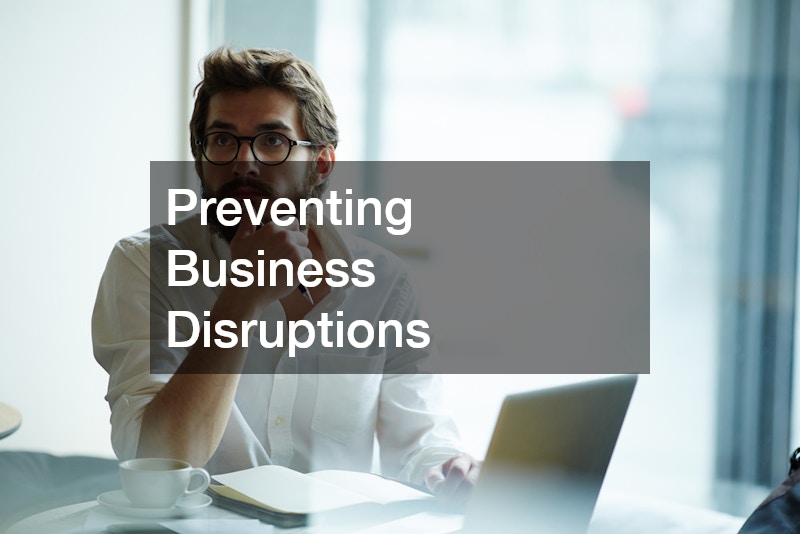In today’s fast-paced and technology-driven world, the security landscape is evolving rapidly. With increasing reliance on digital platforms and interconnected technology, businesses need to heighten their focus on security measures. Whether it’s physical safety measures in a retail space or cybersecurity protocols within a tech firm, understanding why security is important can’t be overstated. This article delves into various industries, illustrating the critical reasons why security is paramount. By examining sectors from flooring companies to powder coating enterprises, we will explore the diverse applications and strategic importance of security across the board. As businesses face a wide array of risks from cyber threats to physical breaches, failing to prioritize security can lead to catastrophic outcomes. Effective security policies not only protect assets and ensure compliance but also bolster customer trust and maintain competitive advantages. Through this extensive discussion, companies can gain a clearer grasp of how to tailor security strategies to meet their specific needs and protect their future.
1. Protecting Assets and Property

For a flooring company, protecting physical assets is a top priority. Inventory, equipment, and the physical location must be safeguarded against theft and damage. This highlights why security is important, as these companies often hold valuable materials and equipment on-site. Without adequate security, the risk of break-ins or vandalism could disrupt business operations significantly.
Implementing measures such as surveillance cameras, alarm systems, and secure access controls helps mitigate these risks. Enhanced security protocols ensure that only authorized personnel have access to valuable company resources. By securing their premises, flooring companies can focus on delivering quality services without constant worry about potential losses.
Moreover, investment in proper security can lower insurance premiums and reduce long-term operational costs. When insurers see that a flooring company is proactive in its security measures, they are more likely to offer favorable terms. This effectively demonstrates why security is important for maintaining financial viability and operational efficiency.
In addition to physical security measures, digital safeguards play a growing role in asset protection for flooring companies. Many businesses now rely on digital inventory systems, automated billing, and client databases that contain sensitive information. Without firewalls, encrypted storage, and secure network protocols, these digital assets are vulnerable to cyberattacks, which can lead to data breaches and costly interruptions. Integrating both physical and digital security frameworks provides a more comprehensive defense against potential threats.
Employee awareness and training also contribute significantly to asset protection. By educating staff on security protocols—such as how to handle suspicious activity, manage access controls, and properly secure materials at the end of the workday—companies add another layer of protection. When employees understand their role in safeguarding property, they become active participants in the company’s overall security strategy. This reinforces why security is important not only at the managerial level but throughout the entire organization.
2. Preventing Unauthorized Access
HVAC companies often manage sensitive systems that are critical to both residential and commercial environments. Unauthorized access to these systems can lead to significant disruptions and safety hazards. Therefore, understanding why security is important in this context becomes crucial.
Strong access control systems are essential for HVAC businesses to ensure that sensitive equipment and locations are only accessible to certified professionals. This not only protects the integrity of their installations but also assures clients of their commitment to safety and reliability. Security thus becomes a key selling point, differentiating them from competitors who may not emphasize such robust measures.
By preventing unauthorized access, an HVAC company can avoid costly downtime and preserve its reputation in the market. The risk of system failures or data breaches diminishes significantly, allowing them to maintain client satisfaction and trust. Ensuring that only qualified personnel have access further emphasizes why security is important across all operational aspects.
3. Safeguarding Sensitive Data
In the realm of contract manufacturing, safeguarding sensitive data is of utmost importance. These companies handle proprietary information and intellectual property that are critical to the businesses they serve. Why security is important can be seen in their need to protect client confidentiality and prevent industrial espionage.
Robust cybersecurity measures are crucial for preventing unauthorized data access. This includes implementing advanced firewalls, encryption protocols, and regular audits to identify potential vulnerabilities. A contract manufacturing company that prioritizes these security measures demonstrates its commitment to client trust and confidentiality.
Furthermore, data breaches can have severe legal and financial ramifications. A single breach can result in hefty penalties and loss of business. This stark reality underscores why security is important for maintaining compliance and protecting the firm’s reputation in a competitive industry.
Another vital aspect of safeguarding sensitive data involves employee access control and internal data policies. Contract manufacturing companies must establish strict role-based access systems that limit sensitive information to only those who need it for their job functions. Regular audits of user permissions and activity logs help identify and address unauthorized access before it leads to a breach. This level of oversight demonstrates why security is important for maintaining both operational integrity and client confidence.
Additionally, third-party partnerships introduce potential vulnerabilities that must be carefully managed. Vendors, subcontractors, and even temporary consultants may require access to proprietary information. Implementing comprehensive vetting processes and non-disclosure agreements, along with secure file-sharing platforms, helps mitigate these risks. Taking proactive steps to manage external data exposure reinforces why security is important in every aspect of a contract manufacturing operation, from the production floor to administrative systems.
4. Ensuring Employee Safety

For a mold remediation company, ensuring the safety of its employees is paramount. These employees often operate in hazardous environments where exposure to harmful substances is a potential risk. This scenario clearly illustrates why security is important for the health and safety of the workforce.
Appropriate safety protocols, personal protective equipment (PPE), and thorough training are necessary to mitigate these risks. Regular safety drills and inspections further reinforce the commitment to employee well-being. By doing so, mold remediation companies fulfill their ethical obligation to provide a safe working environment.
Furthermore, a safe work environment enhances productivity and reduces downtime due to work-related injuries. It also minimizes potential liabilities and maintains operational integrity. These benefits collectively highlight why security is important, as it directly correlates to the company’s success and reputation.
5. Enhancing Customer Trust
Locksmith companies have unique security challenges due to the nature of their work. They are entrusted with ensuring the security of homes, vehicles, and commercial spaces. Therefore, why security is important becomes self-evident, as it forms the core of their business ethos.
By employing certified professionals and using high-quality, secure products, locksmith companies can effectively reassure customers of their reliability. Transparent security practices and timely responses build strong customer relationships and foster trust in their expertise. This is crucial, particularly in emergency situations where customers expect quick and dependable service.
Moreover, enhancing customer trust through robust security measures can lead to increased customer retention and referrals. As word of mouth is powerful in this industry, maintaining high security standards can significantly impact a locksmith’s business growth and reputation.
Customer trust is also strengthened when locksmith companies are transparent about their security practices. Providing clients with clear information on how their data is stored, how access is controlled, and what safety measures are in place during service calls builds credibility. Customers are more likely to feel comfortable and secure when they know that their locksmith not only installs security systems but also practices what they preach. This transparency reinforces why security is important not just for client protection but also for brand integrity.
Furthermore, offering post-service support and security audits can deepen customer relationships. When locksmith companies follow up to check on installed systems, offer maintenance tips, or provide upgrades, it shows an ongoing commitment to the customer’s safety. This level of service encourages repeat business and referrals, positioning the company as a trusted advisor rather than a one-time provider. These lasting connections highlight why security is important for building long-term customer loyalty and sustaining business growth.
6. Reducing Risk of Theft
Hydroseeding companies often manage valuable equipment and resources on vast tracts of land. The potential for theft is substantial, making security a primary concern. This context highlights why security is important to operational continuity and risk management.
Implementing surveillance systems and GPS tracking for equipment can significantly reduce the risk of theft. With these security measures in place, a hydroseeding company can quickly respond to potential threats and prevent asset loss. This proactive approach protects the company’s investments and sustains its profitability.
Reduced theft risk also translates into financial savings and improved resource management. By preserving their resources and minimizing losses, these companies maintain their ability to deliver projects on time and within budget. Overall, such practices exemplify why security is important for maintaining competitive and operational effectiveness.
7. Protecting Brand Reputation

For a roadside assistance company, protecting its brand reputation is paramount. Customers depend on these services during emergencies, necessitating reliable and secure operations. Why security is important can be understood through the lens of customer service and brand perception.
Effective security protocols ensure that roadside assistance providers can respond promptly and safely to customer needs. This includes background checks for employees, secure communication systems, and verified customer identification processes. By maintaining these standards, such companies reinforce their credibility and reliability.
Moreover, an impeccable brand reputation attracts new customers and retains existing ones. Customers trust firms that prioritize their safety and adhere to stringent security standards. This illustrates why security is important, not just for operational success but also for fostering brand loyalty and growth.
8. Supporting Regulatory Compliance
For a local sign company, adherence to regulatory compliance is a significant factor. Regulatory standards often dictate specific security measures to ensure both workplace safety and environmental sustainability. This framework highlights why security is important from a legal perspective.
Compliance with regulations requires comprehensive security audits, risk assessments, and regular updates to security protocols. These steps ensure that companies not only meet legal standards but also operate ethically and responsibly. By fulfilling these requirements, they maintain their license to operate and avoid costly penalties.
Effective security strategies also contribute to streamlined operations and enhanced corporate governance. The alignment of security measures with regulatory expectations emphasizes the company’s commitment to high standards and ethical practices. Thus, the reinforcement of why security is important is evident in both compliance and business integrity.
9. Reducing Liability Risks
A garbage pickup company faces unique liability risks due to the nature of its operations. Employee safety, vehicular safety, and environmental hazards present potential challenges that underscore why security is important.
Comprehensive liability management involves rigorous security measures, including employee training, vehicle maintenance checks, and adherence to environmental guidelines. By implementing these measures, companies can significantly reduce the incidence of accidents and legal disputes.
Furthermore, reduced liability risks translate into lower insurance premiums and improved public perception. A strong security framework demonstrates a garbage pickup company’s commitment to safety and environmental responsibility. This proactive approach illustrates why security is important for safeguarding both human and environmental resources.
10. Preventing Business Disruptions

Any powder coating company will rely heavily on seamless operations to meet production targets and customer expectations. Unforeseen disruptions can have a cascade effect on their profitability and customer satisfaction, illustrating why security is important.
Proactive security measures, such as fire safety systems, equipment monitoring, and supply chain security protocols, are critical to minimizing disruptions. These practices ensure continuous operations and timely project delivery, maintaining customer confidence.
Additionally, robust security strategies provide a competitive edge, as they enable faster recovery from potential threats or disruptions. This capability to mitigate business interruptions underscores why security is important not just for operational stability, but also for sustaining customer relationships and market positioning.
In conclusion, security is a multifaceted and integral aspect of business operations across various industries. From flooring companies safeguarding their inventory to roadside assistance firms ensuring customer trust, why security is important is a constant theme. It encompasses not just the protection of physical assets but also employee safety, data integrity, and brand reputation. In a world where threats are ever-evolving, a robust security strategy is not just a necessity but a fundamental aspect of strategic planning.
As this article has explored, each industry has its unique security challenges and solutions. However, the overarching goal remains the same: to protect the business interests while fostering trust and compliance. By understanding and addressing the specific security needs inherent to their operations, companies can ensure long-term sustainability and success.
Ultimately, the commitment to security reflects a company’s dedication to excellence and its accountability to stakeholders, customers, and employees alike. This comprehensive approach not only minimizes risks but also enhances operational efficiency, thus reinforcing why security is important. With continued investment in security measures, businesses can navigate future challenges with confidence and resilience.




